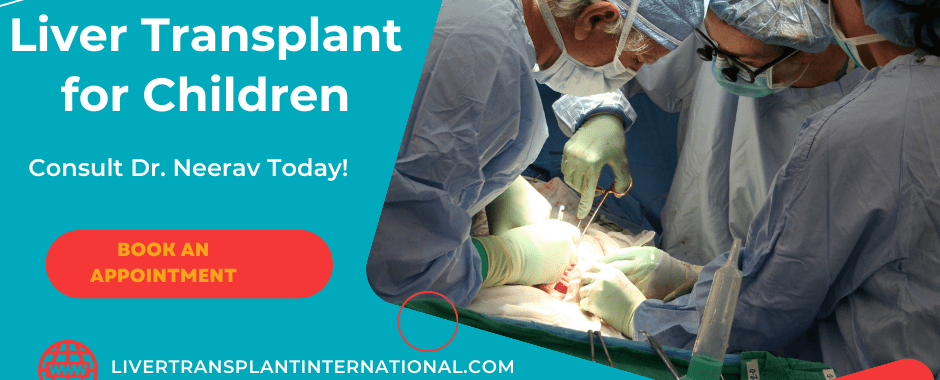Liver transplants in children present unique considerations and challenges that require specialized care and expertise. In India, where liver transplantation programs have seen significant advancements, addressing these factors becomes crucial. Here are some key considerations and challenges specific to liver transplants in children in India:
Pediatric Transplant Expertise:
Opting for a pediatric liver transplant requires a specialized team experienced in pediatric hepatology and transplant surgery. Look for transplant centers with dedicated pediatric liver transplant programs and experienced pediatric hepatologists, transplant surgeons, anesthesiologists, and nursing staff who understand the specific needs of children.
Donor Availability:
The availability of suitable organ donors for pediatric liver transplants can be a challenge. Due to the scarcity of pediatric deceased donors, living donor liver transplantation (LDLT) is often preferred, where a portion of the liver is transplanted from a living donor, typically a family member. Choosing a center with expertise in LDLT and a well-established living donor program is essential.
Pre-transplant Evaluation and Waiting List:
Thorough evaluation of the child’s condition, including liver function, associated medical conditions, and compatibility with potential donors, is crucial. Placement on the waiting list for deceased donor liver transplantation is based on a scoring system known as the Pediatric End-Stage Liver Disease (PELD) score. Understanding the evaluation process and waiting list management at the chosen transplant center is important.
Pediatric-Specific Transplant Techniques:
Pediatric liver transplantation requires surgical techniques tailored to the size and unique anatomy of children. Centers specializing in pediatric liver transplants are adept at using reduced-size grafts, split liver transplants, or other innovative surgical approaches to ensure optimal outcomes for pediatric recipients.
Post-Transplant Care and Follow-up:
Post-transplant care and long-term follow-up play a vital role in the success of pediatric liver transplants. Pediatric transplant centers should provide comprehensive care, including immunosuppression management, nutritional support, psychosocial support, and monitoring for potential complications unique to children, such as growth issues and developmental delays.
Affordability and Accessibility:
The cost of pediatric liver transplantation and post-transplant care can be a significant concern for families. While several government schemes and insurance options may help alleviate the financial burden, it’s crucial to assess the affordability and accessibility of the chosen transplant center and discuss the financial aspects with the hospital and insurance providers.
Multidisciplinary Care:
The success of pediatric liver transplants relies on a multidisciplinary approach involving hepatologists, transplant surgeons, anesthesiologists, intensivists, nutritionists, psychologists, and social workers. The chosen center should have a cohesive team with expertise in pediatric liver transplantation and effective communication among team members for seamless coordination of care.
Support Networks:
Consider seeking out transplant centers with established support networks, including patient support groups, where families can connect with other transplant recipients and share experiences. These networks can provide emotional support, guidance, and valuable insights throughout the transplant journey.
It is important to research and consult with multiple transplant centers in India, considering their expertise, experience, success rates, and patient testimonials. Seeking recommendations from pediatricians, pediatric hepatologists, and other families who have undergone pediatric liver transplantation can also provide valuable insights. Ultimately, selecting a center with a dedicated pediatric liver transplant program and a comprehensive approach to care can help maximize the chances of a successful transplant and improved long-term outcomes for children.


